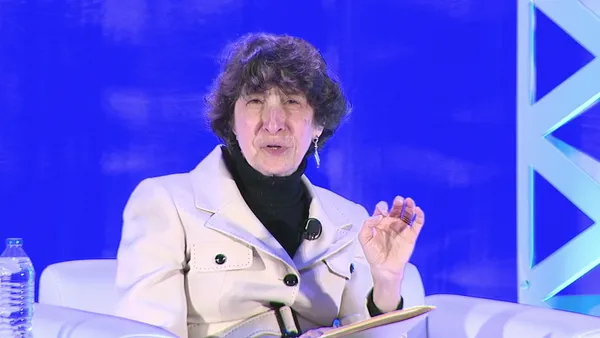Dive Brief:
- Dell Technologies announced Nov. 12 its 2030 goals for culture transformation, focusing on diversity and inclusion (D&I), compliance training, ethics, corporate citizenship and the company's global digital impact.
- In a three-point plan to cultivate inclusion, Dell said it plans to hire, develop and retain more women so that they make up 50% of its global workforce and 40% of its international managerial staff; hire, develop and retain black and Hispanic employees so they account for 25% of the corporation's U.S. workforce and 15% of its U.S. managers; and educate 95% of all employees annually on unconscious bias, microaggressions, harassment and privilege.
- Under Dell's plans to transform lives and fulfill its commitment to corporate social responsibility, the company said it plans to get 75% employee participation in community volunteerism and charitable giving and monitor compliance issues through the use of digital data.
Dive Insight:
Dell's announcement of a culture transformation foretells a prediction made by Glassdoor; in a report released earlier this month, the job board and company rating site called 2020 the start of a "culture first decade." Culture is becoming a priority for a growing number of companies as they face acute talent shortages and struggle with attracting and retaining workers and respond to employees' demands for greater flexibility in handling work and personal responsibilities.
As part of this movement, many employers now see D&I as a driver of engagement and higher returns on investment. And in tech especially, the presence of black or Hispanic workers remains dismally low; a Brookings report from 2018 showed that black workers made up around 8% of all computer and math occupations, while Hispanic workers made up around 7%.
Employers shouldn't underestimate the impact of culture and, by extension, branding, on the talent shortage. For example, a culture that makes people and employee engagement central to its organization's operations, focuses on D&I initiatives, expands talent pools to include underrepresented groups and supports social causes may have an easier time attracting the top talent in the market.
Organizations that create a culture of learning can help prepare their employees for the future of work. But according to the results of an Axonify study released in August, only 41% of the employees surveyed said their companies were training them for the jobs of the future. More employers will need to invest in training and upskilling if they want to build a workforce for the future and effectively compete for talent.













